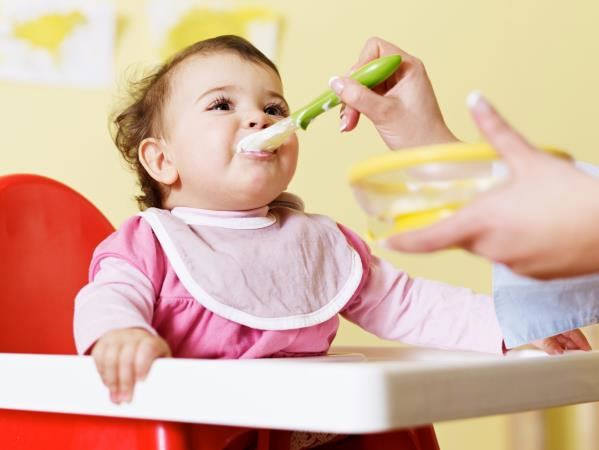October 19, 2023
5 Things to Know About How WIC Works

Though Iowa has participated in the Special Supplemental Nutrition Program for Women, Infants and Children (WIC) since 1974,
While Iowa’s WIC coverage rate is above the national average and one of the best in the Midwest, thousands of Iowans, especially children, are missing out on the nutritional assistance available to them.
questions and misconceptions about how WIC works and who is eligible for WIC remain. In fact, confusion about the program may contribute to the USDA’s estimate that only slightly more than half of Iowans eligible for WIC benefits are receiving them.
According to a 2020 USDA report, there were 113,600 people eligible for WIC in Iowa, but only 59,600 participants — a coverage rate of 52.5%. While Iowa’s coverage rate is above the national average of 50.2% and one of the best in the Midwest, thousands of Iowans, especially children, are missing out on the nutritional assistance available to them. One common misconception is that WIC is not available to children once they turn 1. Data backs up this misperception. In 2020, for example, Iowa had a coverage rate for infants of 88.2%; however, the coverage rate for children aged 1 to 5 fell to 42.4%.
Learn About EveryStep's Work in the Community
To be eligible for the WIC program, you must be a resident of Iowa and one of the following:
- Pregnant, or
- Breastfeeding, or
- Postpartum, or
- A child 5 years old or younger.
Additionally, you must meet certain income guidelines. For instance, currently in Iowa, a family of five must have an annual household income (before taxes) that is below $65,009. A person who participates or has family members participate in certain other benefit programs, such as SNAP, Medicaid or Iowa’s Family Assistance Program, automatically meets the income eligibility requirement.
Connect with EveryStep
After applying for an being approved for benefits, Iowa WIC participants receive an eWIC card, similar to a debit card, to purchase specific foods each month that are designed to supplement their diets with specific nutrients. The program aims to improve the nutrition of pregnant and postpartum women, and their children.
Research published by the Center on Budget and Policy Priorities found WIC to be a “cost-effective investment improving the health and nutrition of low-income families.” The study concluded:
- Women who participate in WIC give birth to healthier babies who are more likely to survive infancy.
- WIC supports more nutritious diets and better infant feeding practices. WIC participants buy and eat more fruits, vegetables, whole grains, and low-fat dairy products.
- Low-income children participating in WIC are just as likely to be immunized as more affluent children and are more likely to receive preventive medical care than other low-income children.
- Children whose mothers participated in WIC while pregnant scored higher on assessments of mental development at age 2 than similar children whose mothers did not participate, and they later performed better on reading assessments while in school.
Women served by EveryStep who participate in WIC also earn points to use at EveryStep’s Stork’s Nest, an educational incentive program for new and expecting moms who live in Polk County and meet income guidelines. At EveryStep’s Stork’s Nest store, a wide range of products can be “purchased” with points earned by engaging in healthy behaviors like attending WIC appointments. In 2022, more than 800,000 points were earned and redeemed for 108 cribs, 242 car seats and other items.
Kabita Gurung, a refugee from Nepal, utilized her Stork’s Nest points for many of the supplies needed for her baby, Jace. “I got so many things!” says Kabita. “A highchair, diapers and wipes, even toys and a carrier to hold my baby on my chest. But the big one was the crib!”
Can you breastfeed while receiving WIC benefits?
While formula is covered by WIC benefits, the program not only supports breastfeeding, but encourages it. “There are a multitude of ways WIC supports breastfeeding, including free breast pump rental and a really cool peer support program with folks who have breastfed their kids and know all the ups and downs, and ins and outs of what that means,” says EveryStep vice president of Community Health Services Jen Groves. “If a person is interested and can do it, WIC supports that breastfeeding, but fed is best, and so formula and other alternatives are an option as well.”
How and when do you sign up for WIC?
Groves recommends applying for WIC as soon as a doctor confirms your pregnancy. By contacting EveryStep, you can receive assistance with your WIC application and learn what other EveryStep programs you may be eligible for, such as doula services or many other forms of support and assistance. Call EveryStep at 515-558-9946 or complete EveryStep’s no-commitment Find Care form. EveryStep experts will contact you to answer your questions and help.
We all face hard times in life, but some people in our community are coping with more difficult circumstances and are struggling to meet their needs as the cost-of-living raises. Many families are piecing together services for their kids.
Donate Now
EveryStep pulls the threads between health and social service systems tight, so no one falls through the gaps, and no one is left to struggle on their own. You have the power to help those who are struggling in your community. Please consider making a gift to strengthen Iowa’s care and support network.